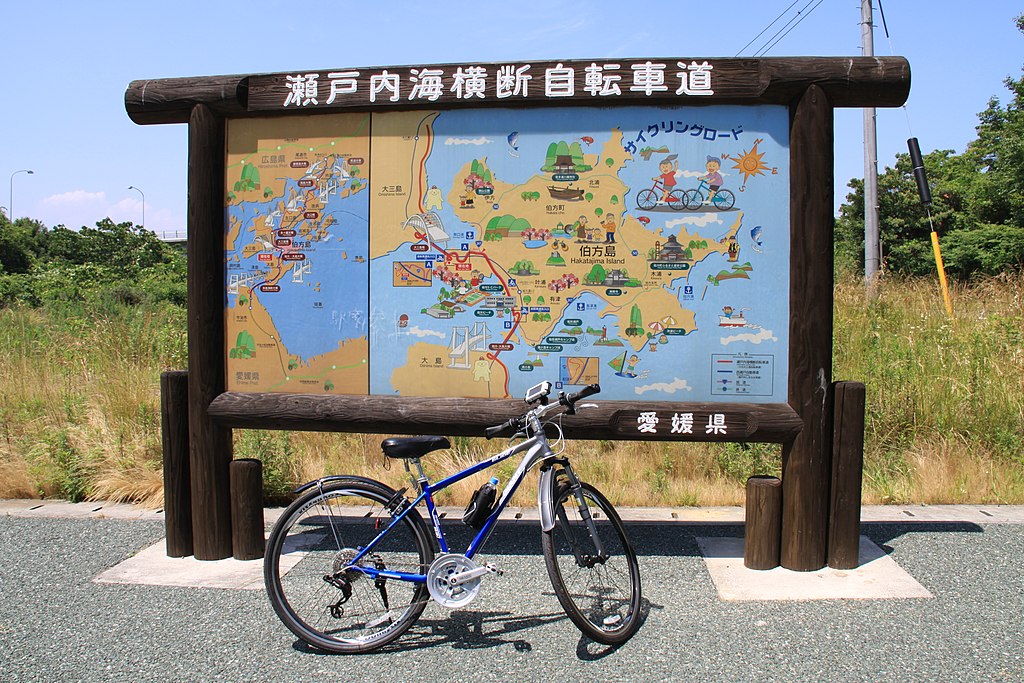Jul 25, 2022
What to See on a Bike Trip Along the Shimanami Kaido
If you’re a bicyclist, you must take the Shimanami Kaido route!”. It runs from Onomichi in Hiroshima to Imabari in Ehime over a series of bridges across the Seto Inland Sea. Your journey will take you to many islands, all of which have something different to offer.
Oranges, Mandarins, and Lemons
Mukaishima is famous for mikan, a type of mandarin. While on the island, make sure to try some mikan juice. The next island you’ll visit is Innoshima, where Hassaku oranges originate. These large oranges make a jelly sold as a dessert throughout Hiroshima. You’ll also have a chance to try a citrus fruit on the next island on your trip — Ikuchi is the biggest producer of lemons in the country. Definitely pick up some Setoda Lemon Cake Shimagocoro.
Kosanji Temple
On Ikuchi Island is the impressive Kosanji Temple. It comprises 15 buildings, all of which feature unusual artistic details. Another thing that makes the temple unique is that Kozo Kosanji built it in dedication to his mother. The site is also worth visiting for the Hill of Hope — a white marble structure made from stone from Italy. The 12 monuments here represent the 12 deities in Buddhism.
Sculptures on Ikuchi
The artwork continues throughout Ikuchi with the 17 sculptures around the island. You can visit the three on Sunset Beach by cycling from Setoda Port.
Traditional Japanese Inns
Since the Shimanami Kaido is 60 kilometers in total, you may like to spread it over two days. A great place to spend the night is one of the traditional inns on Ikuchi. Yubune also has a public bath and sauna; you can bring your bike into your room if you stay on the first floor.
Whirlpools
Leaving your bike to take a sightseeing boat on Oshima Island is worth it. The strong currents meeting the islands create natural whirlpools, which you can safely see up close.
Kirosan Observatory Park
Make sure you also stop at Kirosan Observatory Park when on Oshima. The wooden platform takes you up to the top of Mount Kiro, where you can look out on the surrounding islands and Kurushima Kaikyo Bridge.
Towel Museum of Art
The last island on your journey, Imabari, is famous for its towels. There’s even an entire museum dedicated to towel manufacturing. It’s worth visiting to see the exhibition of traditional towels (which are elaborate works of art) and the process of making towels using looms and other machinery. Afterward, you can have an afternoon tea in the café, take a walk in the garden, and purchase towels or other local products to commemorate your trip.
You can rent a bike to cycle the Shimanami Kaido at Onomichi or Imabari, but it’s best to start (or end) at Mukaishima, which you can reach from Onomichi by ferry (bikes are allowed on board). This shortcut will avoid the narrow first bridge. Since the highway has a dedicated lane for bicycles and pedestrians, that part of the journey is comparably entirely safe.
Masahiko MORIYASU, CC BY-SA 3.0, via Wikimedia Commons


About the author